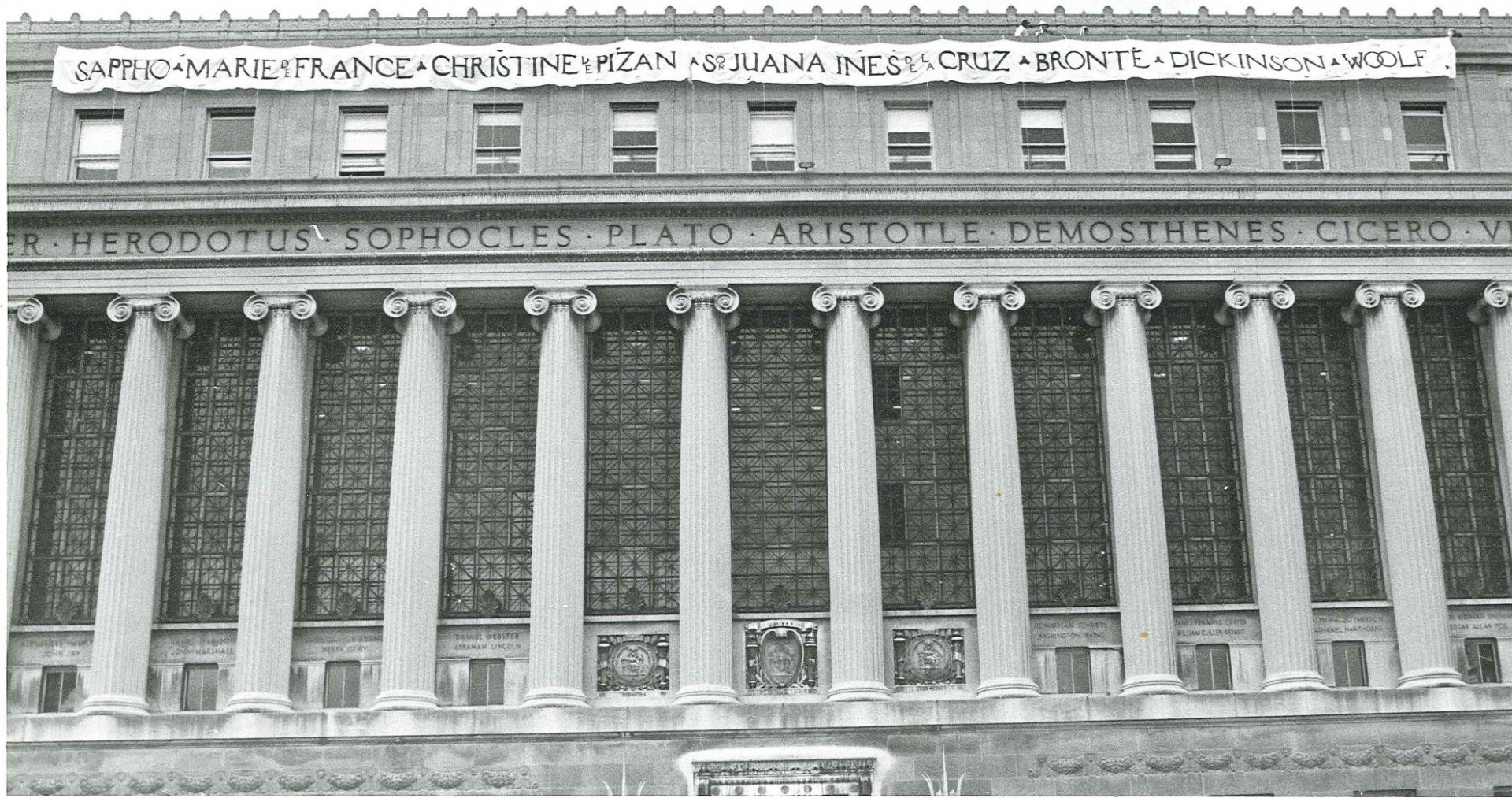Mission & History
The Institute for the Study of Sexuality and Gender (ISSG) is the locus of interdisciplinary feminist and queer scholarship and teaching at Columbia University. Offering an undergraduate degree program and graduate certification in Women’s, Gender, and Sexuality Studies, the Institute draws its core and affiliated faculty from a diverse array of disciplines across Columbia University and Barnard College.
From its inception, the scholarly mission of ISSG has been clear: to promote deep scholarship of the highest intellectual standards, cultivate innovative thinking and approaches to key questions in the field, and foster institutional transformation. The Institute lives this mission in two key ways. First is its focus on teaching—the Institute is the central unit on campus promoting feminist and queer pedagogies for students across all disciplines, regardless of departmental or professional school affiliation. Additionally, the Institute’s curricular offerings have long been the center for LGBTQ scholarship in the Arts and Sciences at Columbia, an attribute that is wholly unique to the work of the Institute and one that was largely created in response to the interests of the student population at the University. Secondly, ISSG promotes faculty research through a close partnership with the Center for the Study of Social Difference (CSSD)—a vibrant, interdisciplinary research center where our faculty participate in ambitious projects with impact-oriented goals, while also fostering a sense of intellectual community across disciplines that is a trademark of the Institute.
Institute History
The Institute was founded in 1987, then named the Institute for Research on Women and Gender (IRWAG). Its first director, Carolyn Heilbrun, of the English Department, who served between 1987 and 1989, laid the groundwork for faculty development and curricular expansion that culminated in the current Institute’s broad program of graduate and undergraduate offerings. After Professor Heilbrun’s departure, IRWAG was chaired by Martha Howell, of the History Department. Professor Howell’s five-year tenure was followed by a two year directorship by Professor Victoria de Grazia, of History. She was succeeded by Professor Jean Howard (English); Rosalind Morris (Anthropology); Lila Abu-Lughod (Anthropology); Saidiya Hartman (English); Alondra Nelson (Sociology); Marianne Hirsch (English); and Patricia Dailey (English). The current director is Jack Halberstam (English).
Since its formation, the Institute has grown steadily. In 1998, the Institute undertook a new initiative to hire four senior faculty members on a cross-appointment basis with the departments. Under this initiative, Professors Alice-Kessler Harris (History), Lila Abu-Lughod (Anthropology), Marianne Hirsch (English), and Elizabeth Povinelli (Anthropology) joined the faculty. Saidiya Hartman (English) and Alondra Nelson (Sociology) were appointed in 2008, and Jack Halberstam (English) was appointed in 2017. Sarah Haley (History) is the most recent addition to the faculty, joining ISSG in 2021.
The Institute now counts more than eighty faculty among its associated community. Rotating committees oversee the curriculum and executive activities of the Institute, and help ensure that it is representative of a broad array of issues, perspectives, and identities. In 2008, the Institute added “Sexuality Studies” to its undergraduate degree program, reflecting the changing fields of scholarship in which our faculty and students have been engaged. In 2021, the Institute changed its name to the Institute for the Study of Sexuality and Gender, both further clarifying its academic mission as well as recognizing the continued evolution of the field with a focus on trans and gender non-conforming ideas and scholarship.

